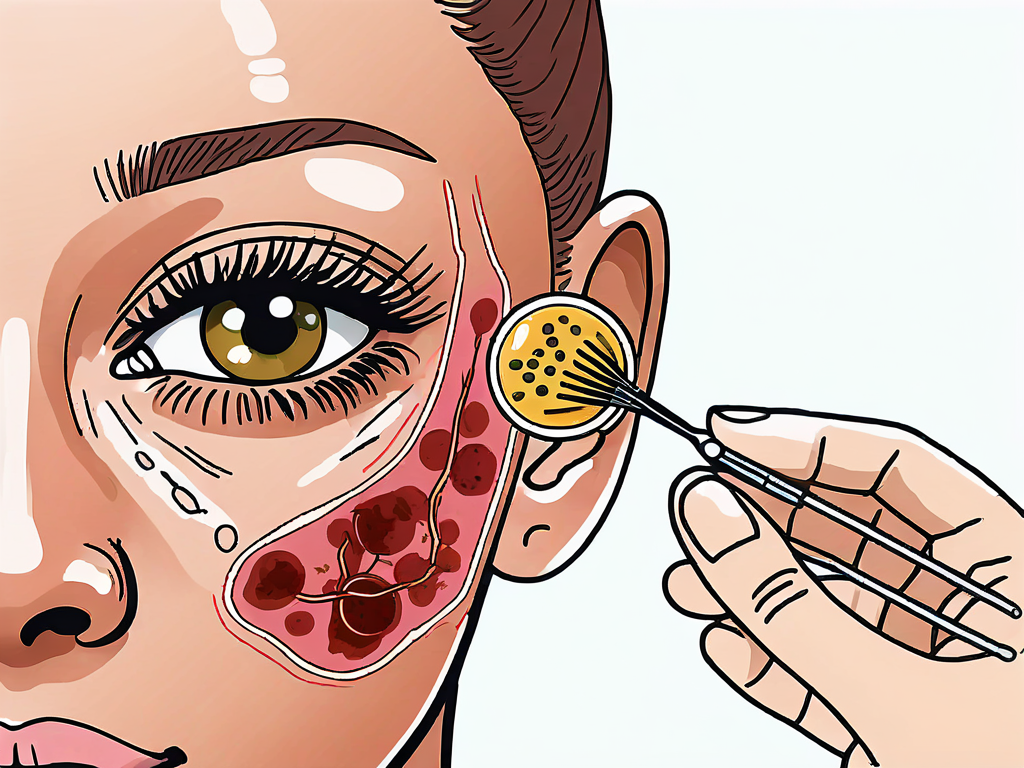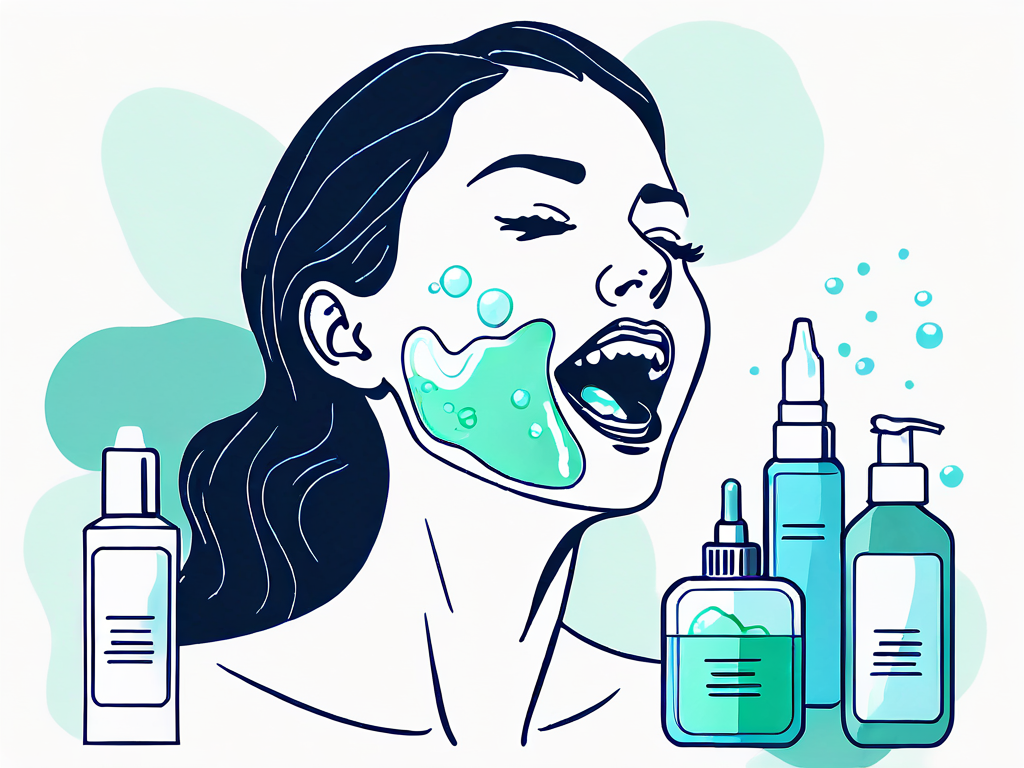Inner cheek bites can be a painful and bothersome condition that affects many individuals. If you are experiencing this issue, it is essential to understand the causes, symptoms, and diagnosis of inner cheek bites. Furthermore, you may be interested in exploring various treatment options, including over-the-counter solutions, natural remedies, medical treatments, and preventive measures. This article will provide you with a comprehensive overview of effective treatment options for inner cheek bites, allowing you to make an informed decision about managing this discomforting condition.
Understanding Inner Cheek Bites
Inner cheek bites, also known as oral mucosal injuries, occur when you accidentally bite the inside of your cheek. This can happen while eating, talking, or chewing gum, and can result in painful sores or cuts on the inner cheek. While these bites generally heal within a week or two, they can be bothersome due to discomfort and increased vulnerability to infections. By understanding the causes of inner cheek bites, you can take proactive measures to prevent their occurrence.

Causes of Inner Cheek Bites
Inner cheek bites can have various causes. One common cause is accidentally biting down on the cheek while eating or chewing. This often happens when you are eating too quickly or not paying attention to your food. Additionally, misaligned teeth or dental appliances can increase the likelihood of inner cheek bites. Certain habits, such as nail-biting or cheek chewing, can also contribute to this issue. By identifying the underlying causes, you can minimize the occurrence of inner cheek bites.
Symptoms and Diagnosis of Inner Cheek Bites
Recognizing the symptoms of inner cheek bites is crucial in identifying the condition and seeking appropriate treatment. Common symptoms include pain, swelling, and the formation of small ulcers or cuts on the inner cheek. These bites may also cause discomfort while eating or speaking. If you are experiencing persistent or severe symptoms, it is advisable to consult a healthcare professional for a proper diagnosis. They may examine the affected area and provide guidance on suitable treatment options.
It is important to note that while inner cheek bites are generally harmless and heal on their own, there are certain cases where medical intervention may be necessary. If you notice any signs of infection, such as pus, redness, or a foul odor, it is crucial to seek medical attention. In rare cases, inner cheek bites can become infected and lead to more serious complications. Therefore, it is always better to err on the side of caution and consult a healthcare professional if you have any concerns.
Prevention is key when it comes to inner cheek bites. By adopting good oral hygiene practices, such as regular brushing and flossing, you can maintain a healthy mouth and reduce the risk of accidental bites. Additionally, being mindful while eating and chewing can help prevent injuries to the inner cheek. If you have misaligned teeth or dental appliances that contribute to frequent cheek bites, it may be worth considering orthodontic treatment to correct the issue.
In conclusion, inner cheek bites can be uncomfortable and inconvenient, but with proper understanding and preventive measures, you can minimize their occurrence. By paying attention to your eating habits, practicing good oral hygiene, and seeking professional help when needed, you can ensure a healthy and bite-free inner cheek.
Over-the-Counter Solutions for Inner Cheek Bites
When it comes to managing inner cheek bites, over-the-counter remedies can offer relief and aid in the healing process. Dealing with the discomfort and pain caused by inner cheek bites can be quite bothersome, but with the right products, you can alleviate the symptoms and promote faster recovery.

Exploring different over-the-counter solutions can help you find the most effective treatment for your inner cheek bite. In addition to topical ointments and gels, there are other options available that can provide relief and support healing.
Topical Ointments and Gels
One commonly used over-the-counter solution for inner cheek bites is topical ointments or gels. These products often contain ingredients such as benzocaine, which temporarily numbs the affected area, reducing pain and discomfort. Applying a thin layer of the ointment or gel directly onto the bite can provide quick relief and promote healing. It's important to follow the instructions provided and avoid using excessive amounts of the product to prevent any adverse reactions.
Oral Rinses and Mouthwashes
Another option for treating inner cheek bites is the use of oral rinses or mouthwashes. These products can help keep the mouth clean, reduce the risk of infection, and provide a soothing effect on the affected area. Look for mouthwashes specifically formulated for oral injuries, as they may contain antiseptic properties that aid in the healing process. Gargling with an oral rinse after meals or before bed can help maintain oral hygiene while also targeting the inner cheek bite for added relief.
Natural Remedies for Inner Cheek Bites
If you prefer natural alternatives or want to complement over-the-counter treatments, several home remedies can help alleviate the discomfort caused by inner cheek bites.

Inner cheek bites, also known as cheek bites or cheek ulcers, can be quite painful and irritating. These small, painful lesions can occur due to accidental biting of the inner cheek while eating or talking. While they usually heal on their own within a week, utilizing natural remedies can help speed up the healing process and provide relief from the discomfort.
Salt Water Rinses
A simple and effective natural remedy for inner cheek bites is salt water rinses. Mixing half a teaspoon of salt into a glass of warm water creates a saline solution that can help reduce inflammation and promote faster healing. Gently swish the solution in your mouth for about 30 seconds before spitting it out. Repeat this several times a day to reap the benefits.
Salt water rinses not only help in soothing the pain associated with inner cheek bites but also create an environment in the mouth that is less conducive to bacterial growth. This can aid in preventing infections and promote a quicker recovery.
Honey Application
Another natural remedy with potential healing properties is honey. Known for its antimicrobial and anti-inflammatory properties, honey can help reduce inflammation and prevent infection in inner cheek bites. Apply a small amount of honey directly onto the affected area and leave it on for a few minutes before rinsing your mouth. This natural treatment option may provide relief while stimulating the healing process.
Honey has been used for centuries as a natural remedy for various ailments, thanks to its healing properties. When applied to inner cheek bites, honey forms a protective barrier over the wound, shielding it from further irritation and promoting tissue regeneration. Its sticky consistency also helps in keeping the affected area moisturized, which can aid in reducing pain and discomfort.
Medical Treatments for Persistent Inner Cheek Bites
If you experience persistent or recurrent inner cheek bites that do not respond to over-the-counter or natural remedies, it may be advisable to seek medical treatments.
Inner cheek bites, also known as cheek biting or cheek chewing, can be a source of discomfort and irritation for many individuals. While occasional cheek bites are common and often heal on their own, persistent or recurrent cases may require medical intervention to alleviate symptoms and prevent further complications.
Laser Therapy
Laser therapy is a non-invasive medical treatment that can effectively alleviate the symptoms of persistent inner cheek bites. This procedure involves using laser energy to expedite the healing process, reduce pain, and minimize the risk of infection. Qualified healthcare professionals can determine the suitability of this treatment option and provide the necessary guidance.
The use of laser therapy for inner cheek bites is gaining popularity due to its precision and effectiveness. The focused laser energy targets the affected area without causing damage to surrounding tissues, promoting faster healing and reducing the likelihood of scarring. Patients undergoing laser therapy often experience minimal discomfort during the procedure and a quicker recovery compared to traditional treatments.
Surgical Options
In severe cases where inner cheek bites become chronic or significantly impact your quality of life, surgical intervention may be necessary. Various surgical techniques can address underlying dental issues or correct misaligned teeth, reducing the risk of further inner cheek bites. Consulting with an oral surgeon or a dental professional can help you explore surgical options that cater specifically to your needs.
Surgical interventions for persistent inner cheek bites aim to address the root cause of the issue, providing long-term relief and improving oral health. Procedures such as orthognathic surgery or dental realignment may be recommended to correct bite abnormalities and prevent future instances of cheek biting. Prior to undergoing any surgical treatment, thorough evaluations and consultations with healthcare providers are essential to determine the most appropriate course of action.
Preventive Measures Against Inner Cheek Bites
Prevention is key when it comes to reducing the occurrence of inner cheek bites. By implementing preventive measures, you can minimize the likelihood of future discomfort.
Dental Devices and Guards
If misaligned teeth or dental appliances contribute to your inner cheek bites, your dentist may recommend using dental devices or guards. These custom-fitted appliances can help align your teeth properly, reducing the risk of accidental biting. Your dentist will assess your specific situation and provide personalized recommendations.
Lifestyle and Dietary Changes
Adopting certain lifestyle and dietary changes can also play a significant role in preventing inner cheek bites. Chewing your food slowly and mindfully, avoiding hard or sharp foods that may cause accidental bites, and practicing stress reduction techniques can all contribute to a healthier oral environment. Additionally, interventions such as nail-biting deterrents or behavioral therapy can help break habits that contribute to oral injuries.
Conclusion
Inner cheek bites can be both painful and bothersome, but with the right treatment options, relief is possible. By understanding the causes, symptoms, and diagnosis of inner cheek bites, you can implement appropriate remedies. Over-the-counter solutions, natural remedies, medical treatments, and preventive measures all offer effective strategies for managing and preventing inner cheek bites. Remember to consult with healthcare professionals for personalized guidance, especially if you experience persistent or severe symptoms. With a proactive approach, you can effectively address inner cheek bites and enjoy improved oral health and well-being.
If you're looking for a personalized and cost-effective solution to prevent inner cheek bites caused by nighttime teeth grinding, consider exploring Remi's custom mouth guards. Designed to provide a perfect fit and crafted from dental-grade, BPA-free plastic, Remi mouth guards are up to 80% more affordable than traditional options. Join The Remi Club for regular deliveries of top and bottom mouth guards, ensuring continuous protection and oral health. Experience the convenience of an at-home impression kit and the assurance of a 30-day return policy. Say goodbye to discomfort and hello to a healthier smile. Shop Now and take the first step towards effective inner cheek bite prevention with Remi.













